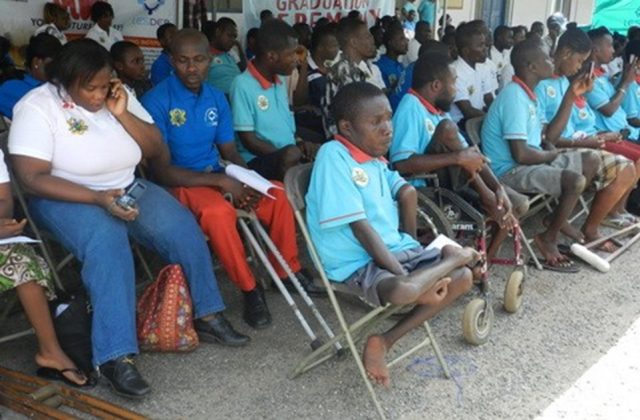Mr Matthew Annor Kodom, National President, Ghana Society of the Physically Disabled, says the revised guidelines on the District Assembly Common Fund (DACF) eliminate political interference in the disbursement of funds for Persons with Disabilities (PWDs).
He said it would also ensure that all PWDs benefited from the fund and not just a selected few who were politically connected.
Mr Kodom was speaking at a sensitisation programme on the Revised Guidelines for Management and Disbursements of the District Assembly Common Fund (DACF) for Persons with Disabilities 2022, in Accra.
The new DACF guidelines is a collaborative effort between the Ministry of Gender, Children and Social Protection, Ministry of Local Government, Decentralisation and Rural Development, Office of Head of Local Government Service, its partners, and the service users themselves through Ghana Federation of Disability Organisations with technical assistance from Ghana Somubi Dwumadie, through the funding support of UK Aid.
Mr Kodom said sometimes the disbursement of funds was delayed because Municipal Chief Executives together with fund managers used part of the monies to finance District projects.
“The disbursement issues can also be attributed to Government’s delay in the release of funds. Sometimes, these delays can last for up to two years,” he added.
He said the delays negatively affected activities of recipients, especially those who needed the funds to pay for school fees.
The National President, therefore, advised managers of Disability Funds to ensure timely disbursement of funds for use by PWDs.
He said the new document allowed for the addition of two fund managers (a male and female PWD) to the already existing four fund managers, bringing the number to six.
Mr Kodom said a new and standardised application format had been developed for members to use in applying for funds, cancelling out the old practice of members having to write application letters.
He said the revised document would ensure that mothers (caregivers) of PWDs, especially children, benefited from the Fund.
The National President said the challenge regarding the threshold for accessible funds had also been addressed by the new document.
He urged participants to share information on the revised document with other members and called on the Media to give attention to discussions surrounding PWDs.
Mr Abdul Razak Yusif, a social worker and a participant, expressed satisfaction about the improvements made in the document and its ability to address corruption.
“Another thing that makes it more lovely is the provision for caregivers. This has been a bigger problem that the social welfare has been facing but now, it has been resolved in the revised guidelines. I hope the state institutions will take this seriously,” he said.
Another participant, Madam Mawusi Yakor-Hamidu, an Audit Officer, described the revised guidelines as an “enormous” achievement.
“I am happy about provisions in the guidelines that address a lot of our concerns and the fact that people who are already employed in government sectors do not qualify for these funds which are solely meant for vulnerable people and the poor. I will make sure that those who are absent for this event get to know what is in the guidelines,” she added.








![Stonebwoy holds star-studded party for ‘5th Dimension’ mega album [Video]](https://ghananewss.com/storage/2023/04/stonebwoy-partyy-100x75.jpeg)








